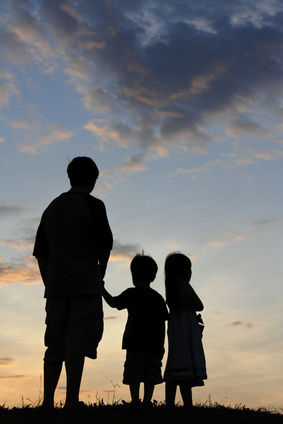Stress
11 Reasons To Stop Rushing Through Life
Most of us take for granted that we're always rushing from one thing to the next
Posted November 5, 2013
“Why do you want your child to hurry up? Because you're done and figure he’s had long enough to finish? ... If you are constantly rushing from one place to the next (doctor’s appointment, haircut, playgroup, music lessons) have you taken on too much? Should you plan more downtime in your schedule so you have more time to be patient? More time for play and cuddles?”
- PhdinParenting

Now that kids are back in school and activities, are you noticing that life is too busy? Most of us take it for granted that we're always rushing from one thing to the next, that we have a never-ending to-do list that keeps us from catching our breath. Pausing to watch the sunset together? Maybe once a year on vacation.
But it costs us. It wears us out and erodes our patience. And it costs our kids even more. Our society is so hooked on adrenalin that we don't acknowledge the high price we, and our children, pay for our lifestyle. There's nothing wrong with rushing once in a while. But rushing our children through life:
1. Influences the developing brain.
Your child's brain is being built every day, and the shape it takes depends on his daily experience. Some neurologists hypothesize that reinforcing neural pathways in a daily context of stress creates a brain with a life-long tendency to anxiety.
2. Increases the levels of stress hormones in kids' bodies
...which contributes to crankiness, difficulty falling asleep and immune suppression.
3. Makes them feel pushed and controlled
...which triggers power struggles. Studies show that this feeling--in adults who work at jobs where they're at someone else's beck and call--sends stress hormones sky-rocketing.
4. Overstimulates them
...so they can't process everything coming at them, which undermines learning.
5. Habituates them to busyness
...so they become easily bored, craving electronic stimulation.
6. Keeps them from discovering and pursuing their own passions
...which is necessarily a slow, organic process of experimentation and dabbling.
7. Creates a chronic feeling of incompleteness
...which steals the joy of mastery.
8. Keeps children from attending to their emotions throughout the day
...so in the evening they have a full emotional backpack of feelings pressing for escape. That triggers meltdowns and can eventually lead to addictions to treats and screens, which we use to distract us from our emotional baggage.
9. Constantly interrupts their developmental work of exploring the world
...so they lose their curiosity.
10. Forces them out of the groundedness of the present moment
...into the breathlessness of scrambling to keep up, which undermines their ability to be fully present.
11. Overrides their natural inclination to "do it myself"
...sabotaging the development of competence.
Not to mention, rushing costs us. It stresses us out, so we enjoy our children less. It makes us less patient, so it's hard to feel good about our parenting. One mom wrote to me that she realized her son wasn't dressing himself partly because she was always in such a hurry that she just dressed him, rather than helping him learn how to do it himself. Another mom wrote that after she got into a fight with her daughter, she realized she had been “too distracted, too busy, to just slow down and be kind.”
This week, notice how often you rush yourself and your child. Notice the price you both pay.
Then, ask yourself:
- How could you build more time into small daily transitions so you aren't always rushing?
- Is there one big thing you could change to slow life down?
- What small daily rituals could your family use as antidotes? Consider gratitude practices, moments of quiet cuddling, pausing to take deep breaths together as you walk out the door every morning.
As you begin to create a little more spaciousness in your life, notice how your child responds by relaxing and cooperating more.
But this isn't just for your child. I'm hoping that you'll notice more moments where YOU feel more present, more relaxed, more well-being.
You're doing a really hard job, being a parent. You deserve more spaciousness, too.




